Related Research Articles

The term chat room, or chatroom, is primarily used to describe any form of synchronous conferencing, occasionally even asynchronous conferencing. The term can thus mean any technology, ranging from real-time online chat and online interaction with strangers to fully immersive graphical social environments.

Online chat is any kind of communication over the Internet that offers a real-time transmission of text messages from sender to receiver. Chat messages are generally short in order to enable other participants to respond quickly. Thereby, a feeling similar to a spoken conversation is created, which distinguishes chatting from other text-based online communication forms such as Internet forums and email. Online chat may address point-to-point communications as well as multicast communications from one sender to many receivers and voice and video chat, or may be a feature of a web conferencing service.
Social software, also known as social apps or social platform includes communications and interactive tools that are often based on the Internet. Communication tools typically handle capturing, storing and presenting communication, usually written but increasingly including audio and video as well. Interactive tools handle mediated interactions between a pair or group of users. They focus on establishing and maintaining a connection among users, facilitating the mechanics of conversation and talk. Social software generally refers to software that makes collaborative behaviour, the organisation and moulding of communities, self-expression, social interaction and feedback possible for individuals. Another element of the existing definition of social software is that it allows for the structured mediation of opinion between people, in a centralized or self-regulating manner. The most improved area for social software is that Web 2.0 applications can all promote co-operation between people and the creation of online communities more than ever before. The opportunities offered by social software are instant connections and opportunities to learn.An additional defining feature of social software is that apart from interaction and collaboration, it aggregates the collective behaviour of its users, allowing not only crowds to learn from an individual but individuals to learn from the crowds as well. Hence, the interactions enabled by social software can be one-to-one, one-to-many, or many-to-many.

WinMX is a freeware peer-to-peer file sharing program authored in 2000 by Kevin Hearn in Windsor, Ontario (Canada). According to one study, it was the number one source for online music in 2005 with an estimated 2.1 million users. Frontcode Technologies itself abandoned development of WinMX in September 2005, but developers brought the service back online within a few days by releasing patches. WinMX continues to be used by a community of enthusiasts.
The computer art scene, or simply artscene, is the community interested and active in the creation of computer-based artwork.

An Internet forum, or message board, is an online discussion site where people can hold conversations in the form of posted messages. They differ from chat rooms in that messages are often longer than one line of text, and are at least temporarily archived. Also, depending on the access level of a user or the forum set-up, a posted message might need to be approved by a moderator before it becomes publicly visible.

MindVox was an early Internet service provider in New York City. The service was referred to as "the Hells Angels of Cyberspace".

The CueCat, styled :CueCat with a leading colon, is a cat-shaped handheld barcode reader that was given away free to Internet users starting in 2000 by the now-defunct Digital Convergence Corporation.
The social web is a set of social relations that link people through the World Wide Web. The social web encompasses how websites and software are designed and developed in order to support and foster social interaction. These online social interactions form the basis of much online activity including online shopping, education, gaming and social networking services. The social aspect of Web 2.0 communication has been to facilitate interaction between people with similar tastes. These tastes vary depending on who the target audience is, and what they are looking for. For individuals working in the public relation department, the job is consistently changing and the impact is coming from the social web. The influence held by the social network is large and ever changing.
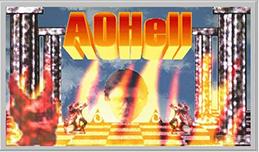
AOHell was a Windows application that was used to simplify 'cracking' using AOL. The program contained a very early use of the term phishing. It was created by a teenager under the pseudonym Da Chronic, whose expressed motivation was anger that child abuse took place on AOL without being curtailed by AOL administrators.
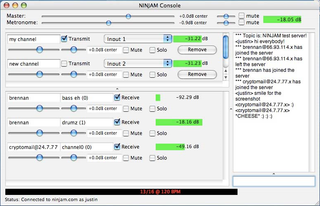
NINJAM stands for Novel Intervallic Network Jamming Architecture for Music. The software and systems comprising NINJAM provide a non-realtime mechanism for exchanging audio data across the internet, with a synchronisation mechanism based on musical form. It provides a way for musicians to "jam" (improvise) together over the Internet; it pioneered the concept of "virtual-time" jamming. It was originally developed by Brennan Underwood, Justin Frankel, and Tom Pepper.
A wordfilter is a script typically used on Internet forums or chat rooms that automatically scans users' posts or comments as they are submitted and automatically changes or censors particular words or phrases.
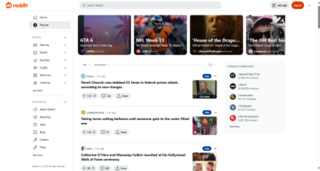
Reddit is an American social news aggregation, content rating, and forum social network. Registered users submit content to the site such as links, text posts, images, and videos, which are then voted up or down by other members. Posts are organized by subject into user-created boards called "communities" or "subreddits". Submissions with more upvotes appear towards the top of their subreddit and, if they receive enough upvotes, ultimately on the site's front page. Reddit administrators moderate the communities. Moderation is also conducted by community-specific moderators, who are not Reddit employees. It is operated by Reddit Inc., based in San Francisco.
DeviantArt is an online art community that features artwork, videography and photography, launched on August 7, 2000 by Angelo Sotira, Scott Jarkoff, and Matthew Stephens among others.

WebChat Broadcasting System, or WBS for short, is a virtual community created during the 1990s. Supported by online advertising, it was one of few services at the time to offer free integrated community services including chat rooms, message boards, and free personal web pages. Extremely popular during the mid to late 1990s in the era prior to the Dot-com bust, WBS was at that time the largest and best-known social media website on the internet. In 1998, WBS was acquired by the search engine Infoseek, which was in turn acquired by Disney/ABC. The original WebChat Broadcasting System closed on 15 September 1999 after its chat rooms were integrated into Disney's existing Go Network chat rooms. A revival of WBS was launched in 2009 and is virtually identical to the original community.
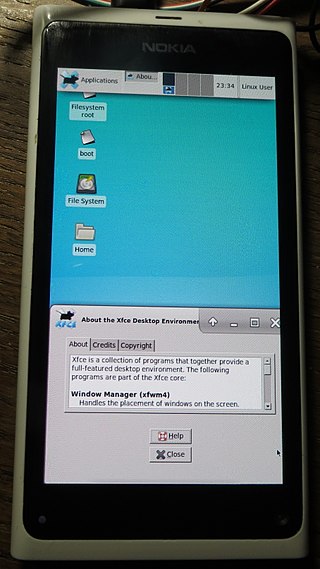
The hacking of consumer electronics is an increasingly common practice that users perform to customize and modify their devices beyond what is typically possible. This activity has a long history, dating from the days of early computer, programming, and electronics hobbyists.
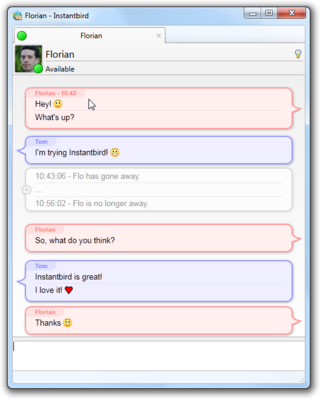
Instantbird is a discontinued cross-platform instant messaging client based on Mozilla's XULRunner and the open-source library libpurple used in Pidgin. Instantbird is free software available under the GNU General Public License. Over 250 add-ons allow user customization of, and addition of, features. On October 18, 2017, Florian Quèze announced that "... we are stopping development of Instantbird as a standalone product."
Shadow banning, also called stealth banning, hellbanning, ghost banning, and comment ghosting, is the practice of blocking or partially blocking a user or the user's content from some areas of an online community in such a way that the ban is not readily apparent to the user, regardless of whether the action is taken by an individual or an algorithm. For example, shadow-banned comments posted to a blog or media website would be visible to the sender, but not to other users accessing the site.
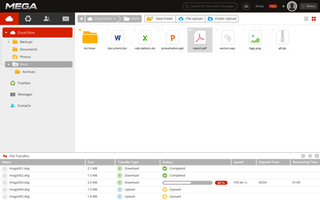
MEGA is a file hosting service offered by MEGA CLOUD SERVICES LIMITED, a company based in Auckland, New Zealand. The service is offered through web-based apps. MEGA mobile apps are also available for Android and iOS.
References
- ↑ Schwartz, Evan (1997). Webonomics . Broadway Books. pp. 24-26. ISBN 978-0-553-06172-7.
- ↑ Evans, Kevin; Galbraith, Carrie; Law, John, eds. (2013). Tales of the San Francisco Cacophony Society. Last Gasp Publishing. pp. 143–144.
- 1 2 Sanctions, Developing Social; Constraints., Using System. "freeform.org : thesis : Deviant Behavior (Virtual Community HCI)". freeform.org. Retrieved 2019-05-28.
- ↑ "Wired News: Bianca's Bandwidth Bitching Irony". Archived from the original on 2005-12-14. Retrieved 2005-11-14.